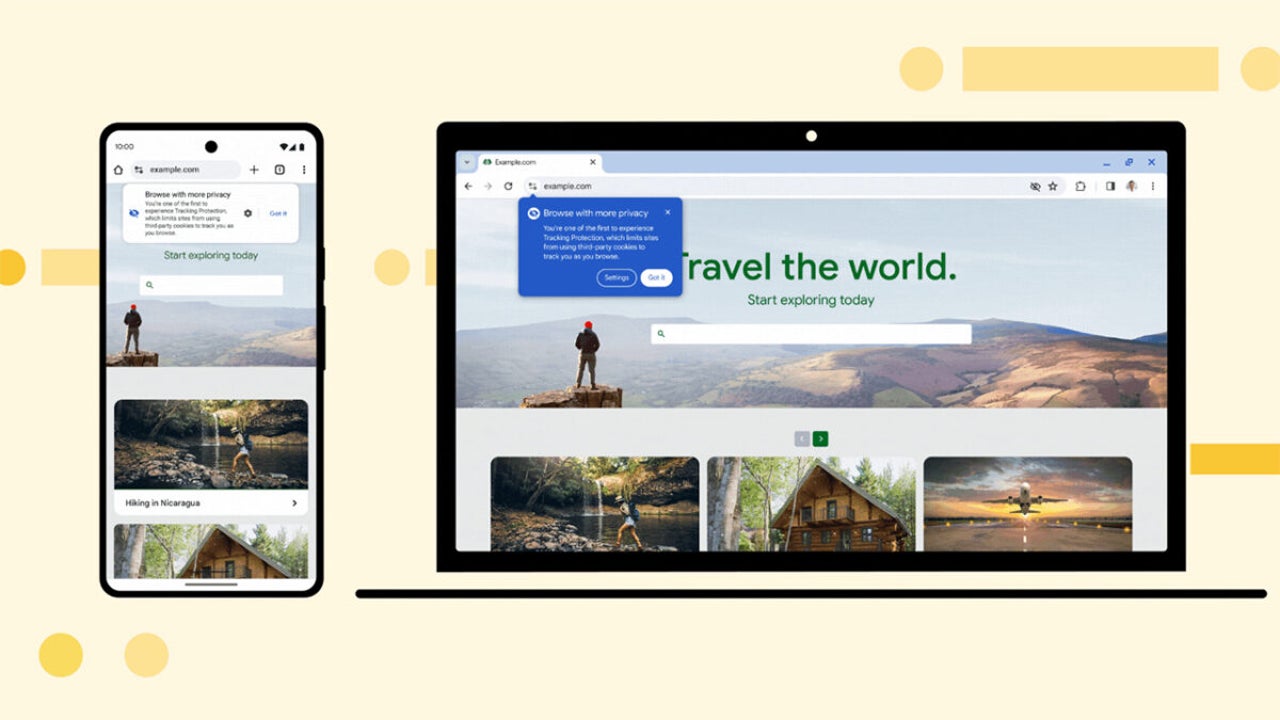News
Did Google reverse its policy against third-party cookies? What happened?
The company is still taking regulators for a ride

- July 23, 2024
- Updated: July 1, 2025 at 11:08 PM

Google has confirmed that its long-awaited removal of third-party tracking cookies in its Chrome browser has been thwarted. The company was trying to reach an agreement with regulators to balance its interests with those of the marketing industry, but its attempts have been in vain. This comes shortly after Apple criticized Chrome for “constantly monitoring” users, further aggravating the situation for Google.
On July 22nd, Google announced a new approach to cookies that increases user choice. Instead of eliminating third-party cookies, the company will introduce a new experience in Chrome that will allow users to make informed decisions about their privacy while browsing the web. Although the details are not clear, it seems that users will be able to choose between continuing to use tracking cookies, Google’s FLoC API, and a semi-private browsing option, and they will be able to change their choice at any time. However, this new approach has not yet been agreed upon with regulators.
The Competition and Markets Authority (CMA) of the United Kingdom has responded that it will carefully consider this new approach by Google, which will affect 3 billion Chrome users, many of whom are unlikely to change their settings and could benefit more from a browser that already offers the ability to delete third-party cookies by default, such as Mozilla Firefox or Safari by Apple.
Apple has taken the opportunity to promote Safari, highlighting that Chrome constantly spies on its users, in an ad that recreates scenes from Hitchcock’s movie The Birds. Meanwhile, the Electronic Frontier Foundation (EFF) warns that Google’s Privacy Sandbox program, which aims to replace tracking cookies, allows advertisers to continue targeting ads based on users’ behavior on the Internet.
The Privacy Sandbox has not gained traction since its inception, and its latest version, which groups users into similar cohorts, does not prevent fingerprinting, according to Apple. Google concludes its announcement by hoping to collaborate with the web ecosystem to move towards a more private Internet, although its promise to eliminate tracking cookies has not been fulfilled for four years.
Publicist and audiovisual producer in love with social networks. I spend more time thinking about which videogames I will play than playing them.
Latest from Pedro Domínguez
- Fraudulent Websites Are on the Rise: Here’s How Avast Free Antivirus Keeps You Safe
- Unplug This Summer Without Compromising Your Digital Security — Get Protected with Avast Free Antivirus
- Have You Ever Stopped to Think About How Much Personal Information You Share Online Every Day?
- National Streaming Day: How On-Demand Entertainment Has Redefined Our Viewing Habits
You may also like
 News
NewsThe end of the season of the best superhero series returns to deliver its great surprises
Read more
 News
NewsInteractive 3D Mockups: De Illustrator a AR
Read more
 News
NewsThe best game of The Lord of the Rings receives an expansion that adds 20 more hours of gameplay
Read more
 News
NewsNo Man's Sky receives an update that prepares you for Halloween
Read more
 News
NewsJeremy Strong is convinced that his Zuckerberg will be completely different from Jesse Eisenberg's
Read more
 News
NewsSeason 1 of Battlefield 6 is almost here and these are some of its new features
Read more